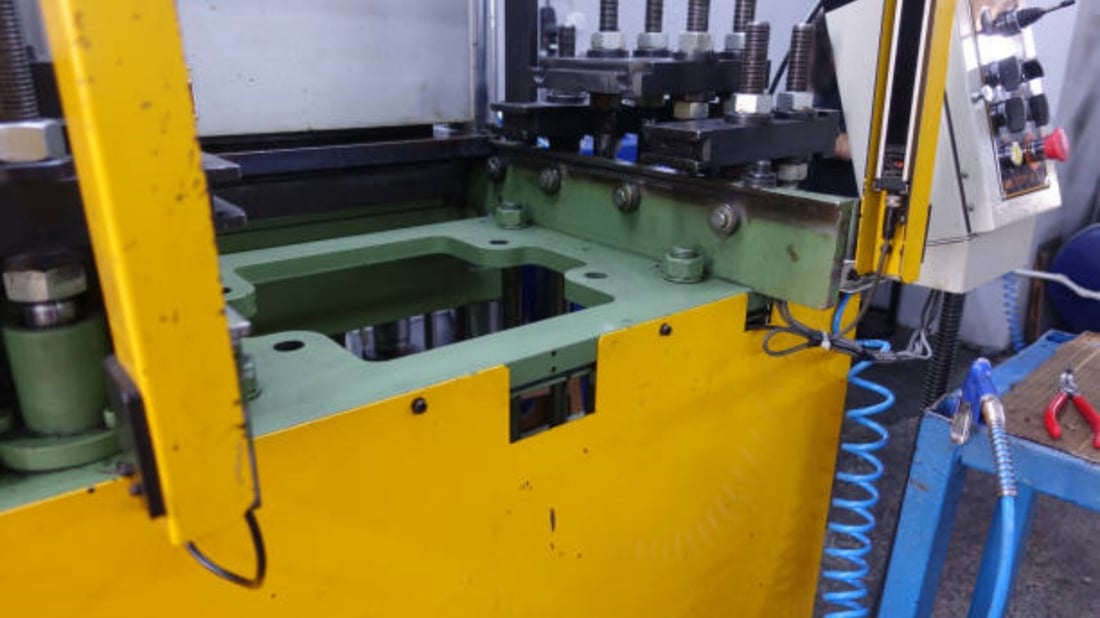material processing equipment: A Comprehensive Guide
Material processing equipment plays a crucial role in various industries, enabling the transformation of raw materials into usable products. From mining to manufacturing, these machines are designed to enhance efficiency and productivity. In this article, we will explore the different aspects of material processing equipment, its types, applications, and the benefits it offers to industries.
1. Understanding Material Processing Equipment
Material processing equipment refers to a wide range of machinery used in industries to handle, transform, and process raw materials. It involves various stages, such as crushing, grinding, sorting, separating, and more. The purpose of this equipment is to convert raw materials into refined and usable forms that meet specific industry requirements.
These machines are typically designed to handle different types of materials, including metals, minerals, plastics, wood, and more. Each type of material may require specialized equipment to ensure efficient processing and optimal results.
2. Types of Material Processing Equipment
Material processing equipment can be categorized into several types based on their functions and applications. Let's explore some of the most common types:
a) Crushing Equipment
Crushing equipment is used to reduce the size of large materials into smaller particles. It is commonly used in mining, construction, and recycling industries. Crushers, such as jaw crushers, cone crushers, and impact crushers, are often employed for this purpose.
b) Grinding Equipment
Grinding equipment is used to refine materials by applying mechanical force. It is widely used in industries like manufacturing, mining, and construction. Grinding mills, ball mills, and grinders are some common examples of grinding equipment.
c) Sorting and Separating Equipment
Sorting and separating equipment is used to separate materials based on their properties, such as size, shape, density, or magnetic susceptibility. This equipment is commonly used in recycling, mining, and waste management industries. Vibrating screens, magnetic separators, and optical sorters are commonly used for sorting and separating.
d) Heating and Cooling Equipment
Heating and cooling equipment is used to manipulate the temperature of materials during processing. Industries like food processing, pharmaceuticals, and chemical manufacturing rely on this equipment to achieve desired temperature conditions. Examples of heating and cooling equipment include ovens, furnaces, refrigerators, and chillers.
e) Conveying and Feeding Equipment
Conveying and feeding equipment is used to transport materials from one location to another within a processing facility. It ensures a smooth flow of materials and helps in automating the production process. Belt conveyors, screw conveyors, and vibrating feeders are commonly used for this purpose.
3. Applications of Material Processing Equipment
Material processing equipment finds applications in various industries. Let's explore some of the key sectors where this equipment plays a crucial role:
a) Mining and Quarrying
In the mining and quarrying industry, material processing equipment is used to extract valuable minerals and resources from the earth. Crushers, screens, and separators are commonly used to process ores, coal, and other minerals.
b) Manufacturing
Material processing equipment is widely used in the manufacturing industry to transform raw materials into finished products. Equipment like grinders, mixers, and extruders help in shaping and refining materials to meet specific product requirements.
c) Recycling
Recycling industries heavily rely on material processing equipment to sort, separate, and process recyclable materials. This equipment ensures that materials like plastics, metals, and paper are properly processed and recycled, reducing the strain on natural resources.
d) Construction
Construction projects require material processing equipment to crush, grind, and sort materials like concrete, asphalt, and aggregates. This equipment ensures that construction materials are processed to meet the required specifications.
4. Benefits of Material Processing Equipment
Material processing equipment offers numerous benefits to industries. Let's explore some of the key advantages:
a) Improved Efficiency
By automating and streamlining the processing of materials, these machines significantly improve efficiency. They can handle large volumes of materials in a short period, reducing manual labor and increasing productivity.
b) Enhanced Product Quality
Material processing equipment ensures consistent processing, resulting in high-quality end products. The precision and control offered by these machines help industries meet strict quality standards and deliver reliable products to their customers.
c) Cost Savings
Efficient material processing reduces waste and optimizes resource utilization, leading to cost savings. By minimizing material losses and maximizing output, industries can achieve higher profitability and reduce overall production costs.
d) Increased Safety
Material processing equipment is designed with safety features to protect workers and prevent accidents. These machines reduce the need for manual handling of materials, minimizing the risk of injuries and ensuring a safer working environment.
5. Choosing the Right Material Processing Equipment
When selecting material processing equipment, several factors need to be considered:
a) Material Type
Identify the type of material that needs to be processed and choose equipment that is specifically designed for handling that material. Different materials may require different equipment to achieve optimal results.
b) Processing Requirements
Consider the specific processing requirements, such as the desired output size, capacity, and efficiency. This will help in selecting equipment that can meet the production goals and deliver the desired processing outcomes.
c) Maintenance and Support
Assess the maintenance requirements and availability of support for the chosen equipment. Regular maintenance and timely support are essential for ensuring the longevity and uninterrupted operation of material processing equipment.
6. Conclusion
Material processing equipment plays a vital role in industries by enabling the efficient and effective transformation of raw materials into usable products. From crushing and grinding to sorting and separating, these machines offer a wide range of capabilities. The right selection and utilization of material processing equipment can lead to improved efficiency, enhanced product quality, cost savings, and increased safety. Understanding the different types, applications, and benefits of material processing equipment is essential for industries looking to optimize their production processes.

